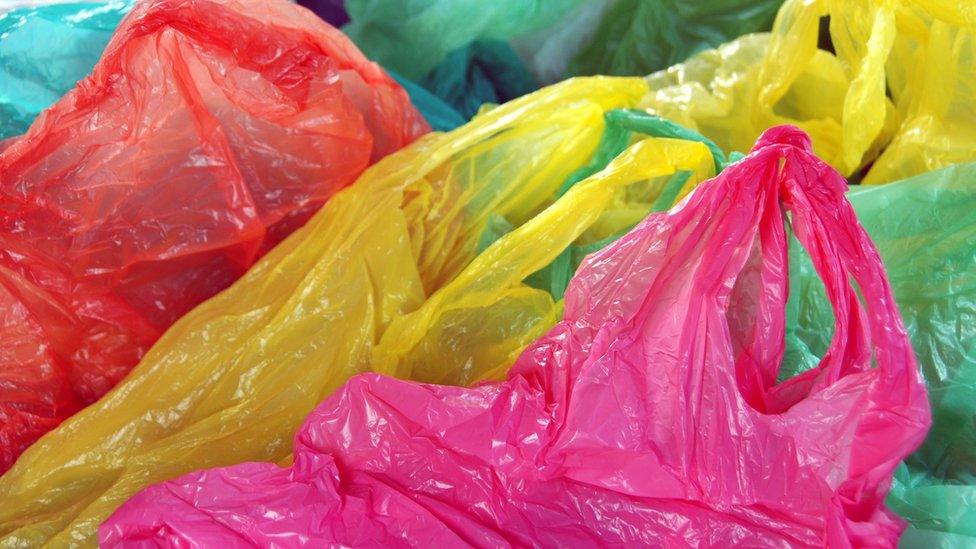Plastic bag sales in England halved in past year
- Published
- comments
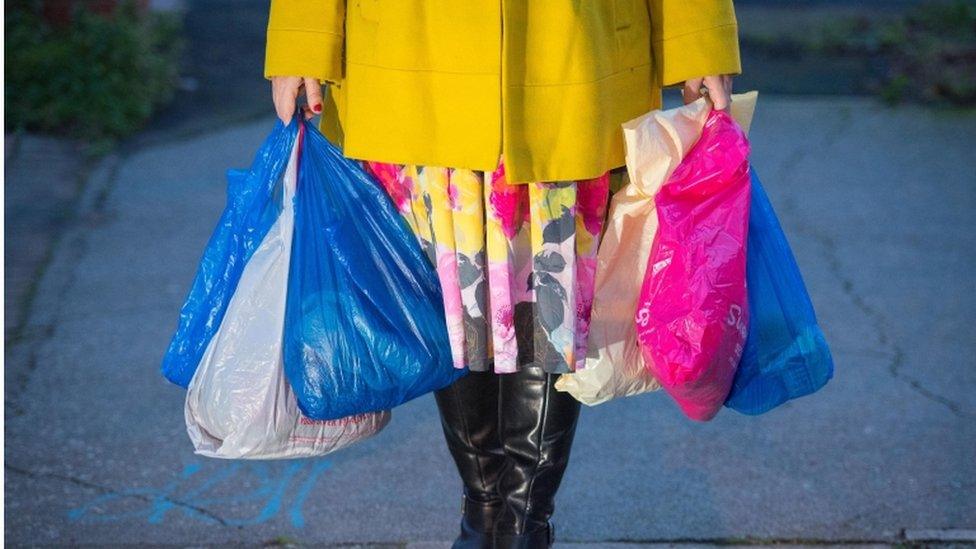
Plastic bags sales by the biggest supermarkets in England have halved in the last year, government data shows., external
Asda, Marks and Spencer, Morrisons, Sainsbury's, the Co-op, Tesco and Waitrose sold 549 million single-use plastic bags in 2018-19, down from one billion in the previous year.
Since 2015, when a 5p charge was introduced to tackle plastic pollution, the number being used is down by 90%.
Customers now buy, on average, 10 bags a year compared to 140 bags in 2014.
Environment Secretary Theresa Villiers said the figures were "a powerful demonstration that we are collectively calling time on being a throwaway society."
The big move away from plastic bags after shops started charging for them in 2015 was already well-known - but that downward trend has accelerated again in the past year.
That could partly be due to more awareness of plastic pollution. TV series Blue Planet II helped to highlight the scale of plastic pollution in the world's oceans and was the most-watched TV show of 2017.
Under the October 2015 levy in England, only retailers with more than 250 employees have to charge customers for the use of plastic bags.
This contrasts with the situation in Northern Ireland, Scotland and Wales where there is a minimum 5p charge for all retailers.
Shops are expected to donate the money to charitable causes - and the charge is estimated to have raised £169 million since 2015.
In December 2018 the government launched a consultation on raising the minimum charge to 10p.
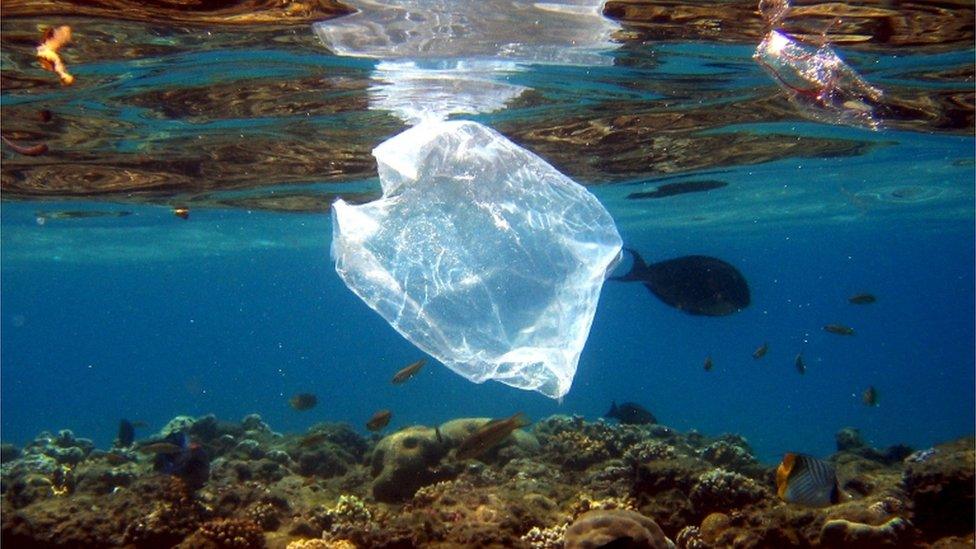
A plastic bag along a coral reef off the coast of the Red Sea
According to government scientists the amount of plastic in the seas is set to treble in a decade.
Across the world, more than 300 million tonnes of plastic is produced annually - around eight million of which enters the oceans.
The plastic breaks down in to smaller pieces which can then be mistaken, by birds and fish for food, clogging their digestive tracks.
Each year 100,000 animals in the sea are killed by plastic.
- Published28 January 2019
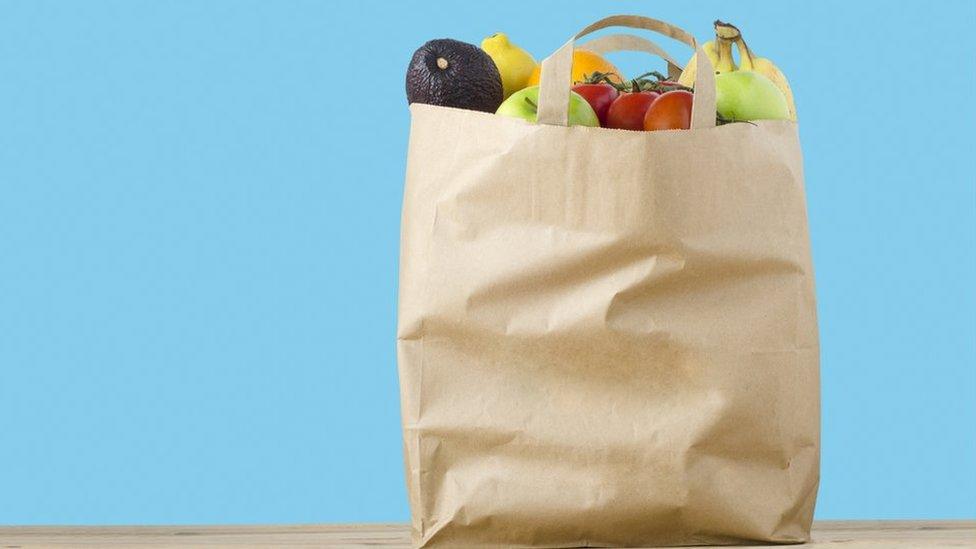
- Published17 March 2020
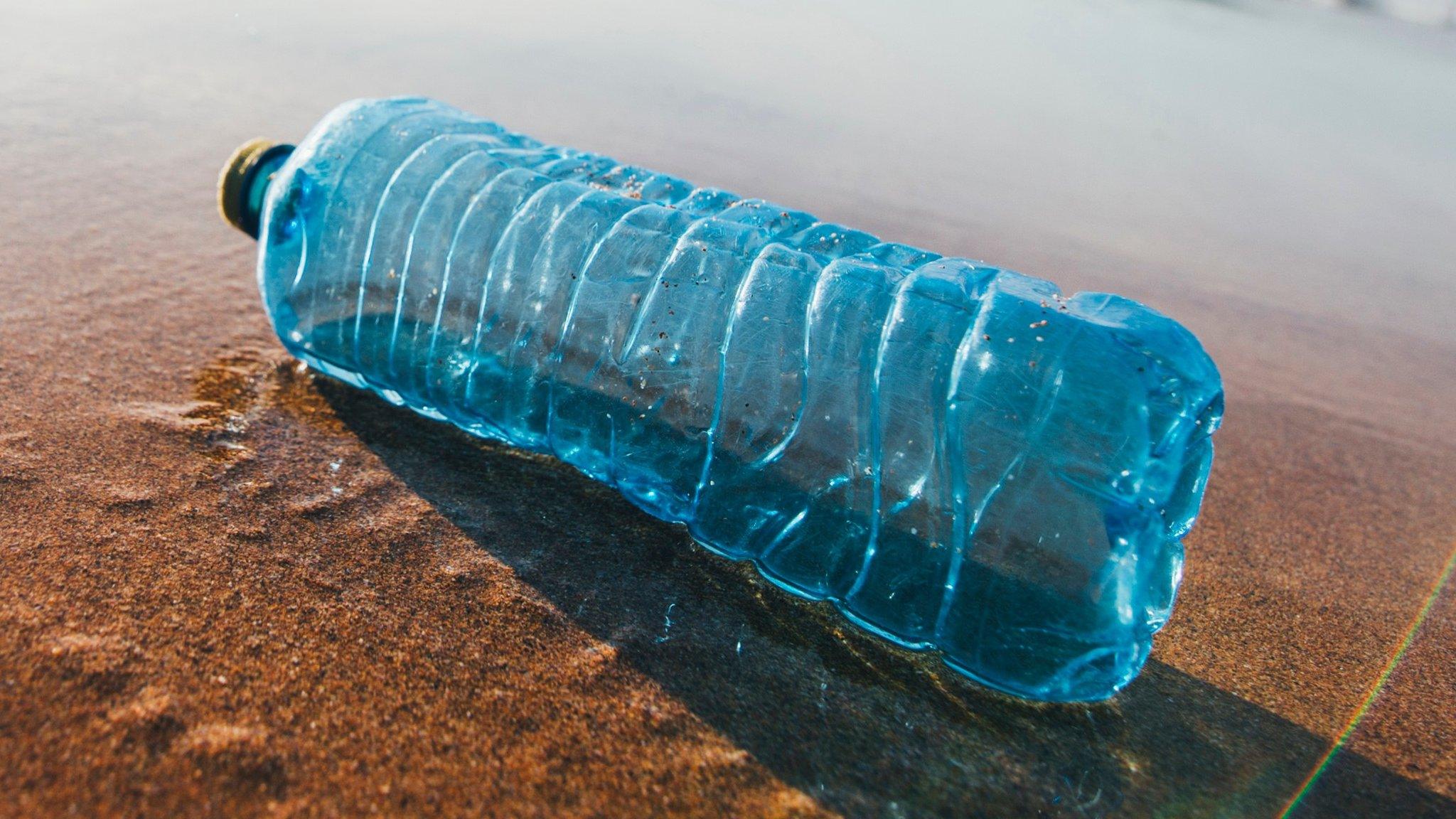
- Published30 August 2018
